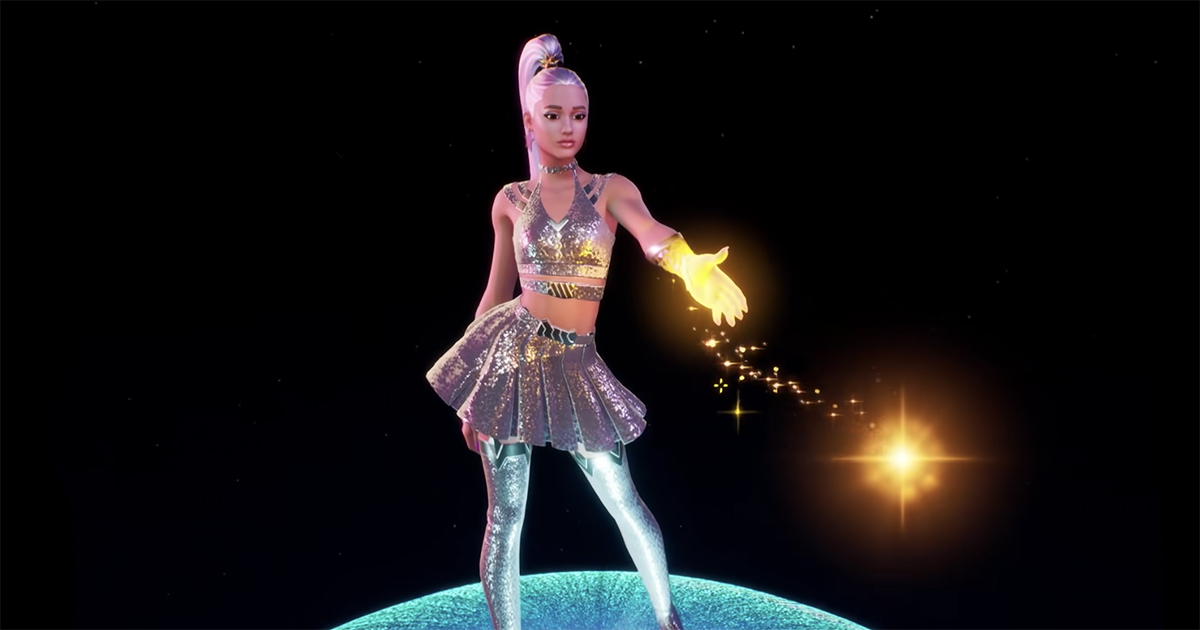
Some of the world’s biggest musicians are jumping into the Metaverse, generating cash from its NFT-powered economy and interfacing with fans via avatars.
This is the depressingly corporate future of music and the internet as outlined by Akash Nigam, CEO and co-founder of the avatar technology company Genies.
“The Metaverse presents a game-changing opportunity for artists focused on creative collaborations and revenue-generating commercial experiences,” he tells Rolling Stone. “This presents an opportunity for artists to reach fans through a variety of activities, including virtual concerts, merchandise sales and other integrated in-game/in-app activities.”
CRUSHING IT IN THE CREATOR ECONOMY:
The cultural impact a creator has is already surpassing that of traditional media, but there’s still a stark imbalance of power between proprietary platforms and the creators who use them. Discover what it takes to stay ahead of the game with these fresh insights hand-picked from the NAB Amplify archives:
- The Developer’s Role in Building the Creator Economy Is More Important Than You Think
- How Social Platforms Are Attempting to Co-Opt the Creator Economy
- Now There’s a Creator Economy for Enterprise
- The Creator Economy Is in Crisis. Now Let’s Fix It. | Source: Li Jin
- Is the Creator Economy Really a Democratic Utopia Realized?
He only mentions established acts, some of which Genies represents, like Shawn Mendes, Kings of Leon, Migos, Grimes, and Snoop Dogg.
All of these have joined the trend for NFTs “to reinvent themselves and engage with fan bases,” Nigam says. The creation and sale of NFTs give “top artists like Snoop Dogg” a direct say in the sales and future resales of their art. As for fans, he says, these digital assets warrant a new way to support their favorite creators and gain exclusive access to merchandise not everyone can have.
“For the most part, it’s a free-market, user-driven economy but non-fungible tokens (NFTs) are changing the landscape. Not only do NFTs provide artists more control over their art, but also the ability to track exactly where royalties should go — and more quickly. As artists are incentivized to use the metaverse as a marketplace to better control and capitalize their craft, they are not only monetizing their songs, but also digital merchandise.”
“The Metaverse presents a game-changing opportunity for artists focused on creative collaborations and revenue-generating commercial experiences. This presents an opportunity for artists to reach fans through a variety of activities, including virtual concerts, merchandise sales and other integrated in-game/in-app activities.”
— Akash Nigam
I don’t believe any of this talk about NFTs and the Metaverse or the creator economy connecting fans with artists. In the scenario outlined here, artists and record labels see the Metaverse as nothing more than a cash cow to exploit. I don’t see any authentic fan-artists connection being discussed. Quite the contrary. The metaverse here serves as another digital barrier between musicians and the people who buy their merch.
Top recording artists are apparently creating their own 3D avatar “as a form of self-expression and a new avenue for fan engagement.”
He explains, “By leveraging 3D avatars, artists can create virtual ‘identities’ that they can then use across various digital platforms. These avatars allow fans to have an online affiliation with an artist, furthering loyalty and engagement in the virtual world.”
NAVIGATING THE METAVERSE:
The metaverse may be a wild frontier, but here at NAB Amplify we’ve got you covered! Hand-selected from our archives, here are some of the essential insights you’ll need to expand your knowledge base and confidently explore the new horizons ahead:
- Does Anyone Actually Care Who Controls the Metaverse?
- The Metaverse Is Struggling to Find a Concrete Form
- How Do We Make Sure the Metaverse Is Equitable?
- Metaverse vs. Multiverse vs. Multi-Metaverse
- How Are We Getting From Here to the Metaverse? Start With These 10 Steps
In Nigham’s deathless description, “the Metaverse serves as a playground for brands to exceed boundaries in the physical world and live out their most fantastical and creative aesthetic in a space that is limitless.”
In truth, he isn’t disguising his view. He concludes by arguing that the Metaverse presents artists, creators, founders, futurists and consumers “an opportunity and potential for increased social connection, experimentation, entertainment and, ultimately, profit.”



